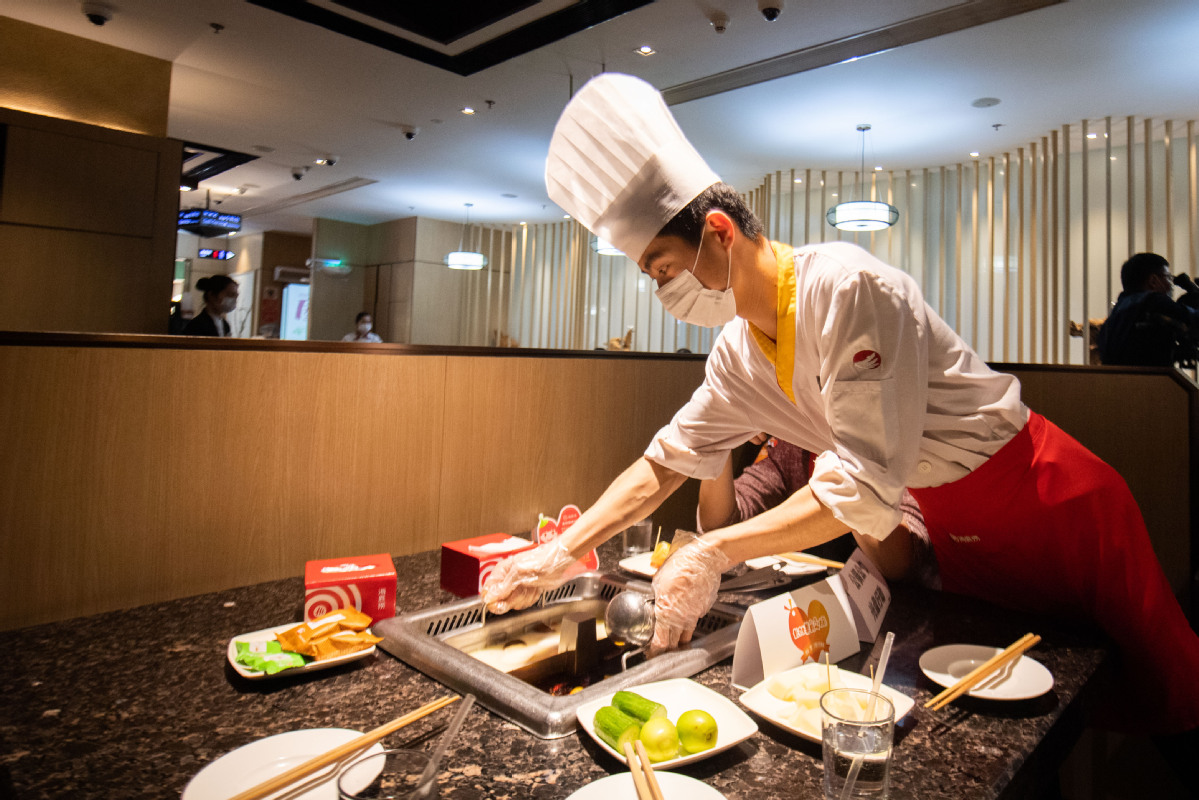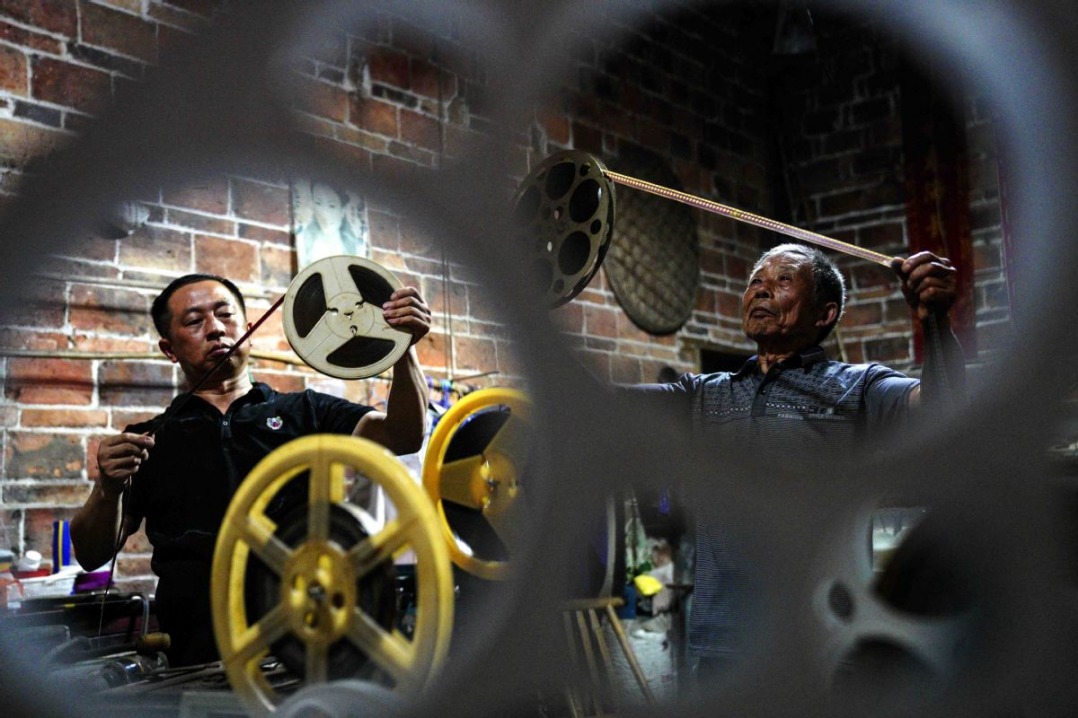Digitalization sweeps catering industry
By ZHENG YIRAN | China Daily | Updated: 2021-08-13 09:30

Digital technologies are reshaping China's traditional catering industry, as large catering enterprises are increasingly investing in digitalization and small and medium-sized companies ramp up efforts in digital transformation, a recent report said.
The report, issued by Beijing-based research consultancy Acewill, said digitalization is the current main trend in China's catering industry.
Kong Lingbo, founder of Acewill, said: "No matter which type of business mode, or what kind of cuisine, the propelling engine for the rapid growth of catering chain stores is digital transformation.
"The ambition of every entrepreneur is different. However, the route of digital transformation is the same. The digitalization trend in the catering industry is gaining momentum, and is indeed necessary for catering entrepreneurs to spend more time to ponder on it."
Data from the National Bureau of Statistics showed that in 2020, despite challenges brought by COVID-19, China's catering industry totaled nearly 4 trillion yuan ($616.8 billion) in business, and digital catering took up an increasing share.
In recent years, a great number of catering chain stores have been embracing digitalization.
Hotpot chain Haidilao launched a smart restaurant in Shanghai in April. Apart from dish-serving robots, robotic arms are equipped in warehouses to arrange raw materials.
The restaurant also adopts a system, namely Insight Knowledge Management System, to conduct real-time monitoring, management and maintenance of the entire unmanned back-stage operations.
From ordering to serving, the dishes are produced automatically. Haidilao said the system can save nearly 37 percent of back kitchen labor costs.
Heytea Go, an ordering app developed by China's leading milk tea chains Heytea, acquired 6 million registered users in seven months after it was launched, and raised the repurchase rate of milk tea by 300 percent.
A report issued by on-demand service platform Meituan said China's digital catering industry experienced rapid growth despite the challenges of COVID-19. Last year, online food orders surged 107.9 percent on a yearly basis.
"China's 14th Five-Year Plan (2021-25) clearly points out that digital transformation of the service industry will be further promoted. At present, the online and offline integrated development of the catering industry has become a general trend, and the trend has reshaped both the supply and demand sides," said the report.
The report added that although COVID-19 struck China's catering industry in 2020, online ordering in the catering industry quickly recovered to 2019 levels, and experienced explosive growth in the next seven months. In December, online orders surged 107.9 percent year-on-year.
"Online ordering methods such as takeaway platforms, WeChat mini programs, catering platforms and brands' self-built online ordering platforms have further opened up the digital development imagination of catering enterprises, and promoted their accelerated migration to online," the Meituan report said.
"For catering enterprises, how to embrace the online and offline integrated scenario, make services no longer limited to physical restaurants, offer services to numerous customers online and extend the service range from within 100 meters to over 10 kilometers, is a new proposition," the report added.
Wang Donghao, an independent expert of digital catering, said:"The digital transformation is an inevitable trend of the catering industry. Digital marketing helps enterprises capture consumer demand and collect user data. It also enables enterprises to deal with and satisfy consumer needs in a quicker manner, which is increasingly important in a fast-paced society."
Tang Xingtong, an independent expert in digital transformation, said: "To realize digitalization, catering enterprises should collect user data, form a real-time response mechanism and have artificial intelligence-empowered automatic services. Their ability to manage data will be their core competitiveness."
























